Two bodies A and B of masses 5 kg and 10 kg in contact with each other rest on a table against a rigid wall as shown in fig. The coefficient of friction between the bodies and the table is 0.15. A force 200 N is applied horizontally to A. What are
(a) the reaction of the partition
(b) the action-reaction forces between A and B ?
(c) What happens when the wall is removed? Does the answer to (b) change, when the bodies are in motion? Ignore the difference between μs and μk

(a) If be the maximum frictional force acting on the combination of A nd B then
f=μR=μ(MA+Mb)g=0.15(5+10)×9.8=22.05N
Reaction of the wall =F−f=200−22.05=177.95N
(b) Force exerted by A on
B=200−fA=200−7.35=192.65N
When the partition is removed the masses move together with an acceleration.
a=Net forcetotal mass=F−fMA+Mb=177.9515=11.86ms−2
Yes, answer to (b) changes. When the bodies are in motion the force exerted by A on B is given by
FBA=(F−μMAg)− (force required to produce an acceleration)
=(200−7.35)−(5×11.86)=133.5N.
Topper's Solved these Questions
- LAWS OF MOTIONBook:AAKASH SERIESChapter:LAWS OF MOTIONExercise:Application
Explore 6 Videos
- LAWS OF MOTIONBook:AAKASH SERIESChapter:LAWS OF MOTIONExercise:EXERCISE - I
Explore 157 Videos
- LAWS OF MOTIONBook:AAKASH SERIESChapter:LAWS OF MOTIONExercise:QUESTIONS FOR DESCRIPTIVE ANSWER
Explore 5 Videos
- GEOMETRICAL OPTICSBook:AAKASH SERIESChapter:GEOMETRICAL OPTICSExercise:ADDITIONAL PRACTICE EXERCISE (LEVEL-II PRACTICE SHEET (ADVANCED) INTEGER TYPE QUESTIONS)
Explore 10 Videos
- LOGIC GATESBook:AAKASH SERIESChapter:LOGIC GATESExercise:Exercise (Very Short Answer)
Explore 10 Videos
Similar Questions
Two bodies A and B of mass 5 kg and 10 kg contact with each other rest on a table against a rigid The coefficient of friction between the bodies and the table is 0.05 A force of 200 N is applied horizontal on A What are (a) the reaction of thee wall (b) the the action , reaction forces between A & B ? What happens when the wall is removed ? Does the answer to (b) Change , when the bodies are in motion ? Ignore differnce between μs and μk
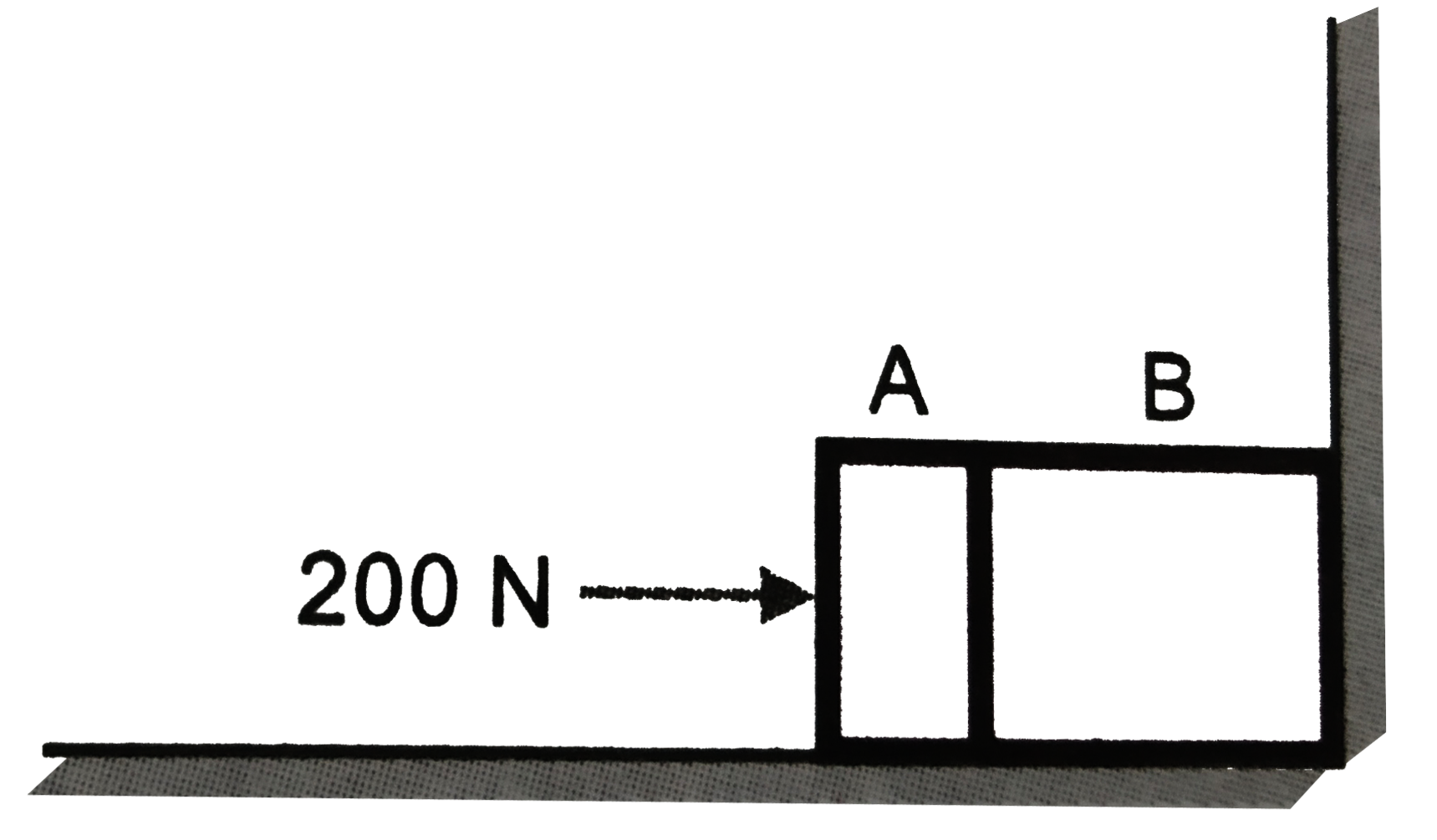 .
.
View SolutionA body is pushed against vertical wall as shown. If the coefficient of friction between the body and the wall is 0.5, the magnitude of acceleration of the block is 10 K. Where K is
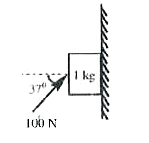
View Solution
Knowledge Check
Two blocks A and B of masses 10 kg and 15 kg are placed in contact with each other rest on a rough horizontal surface as shown in the figure. The coefficient of friction between the blocks and surface is 0.2. A horizontal force of 200 N is applied to block A. The acceleration of the system is (Take g=10ms−2)
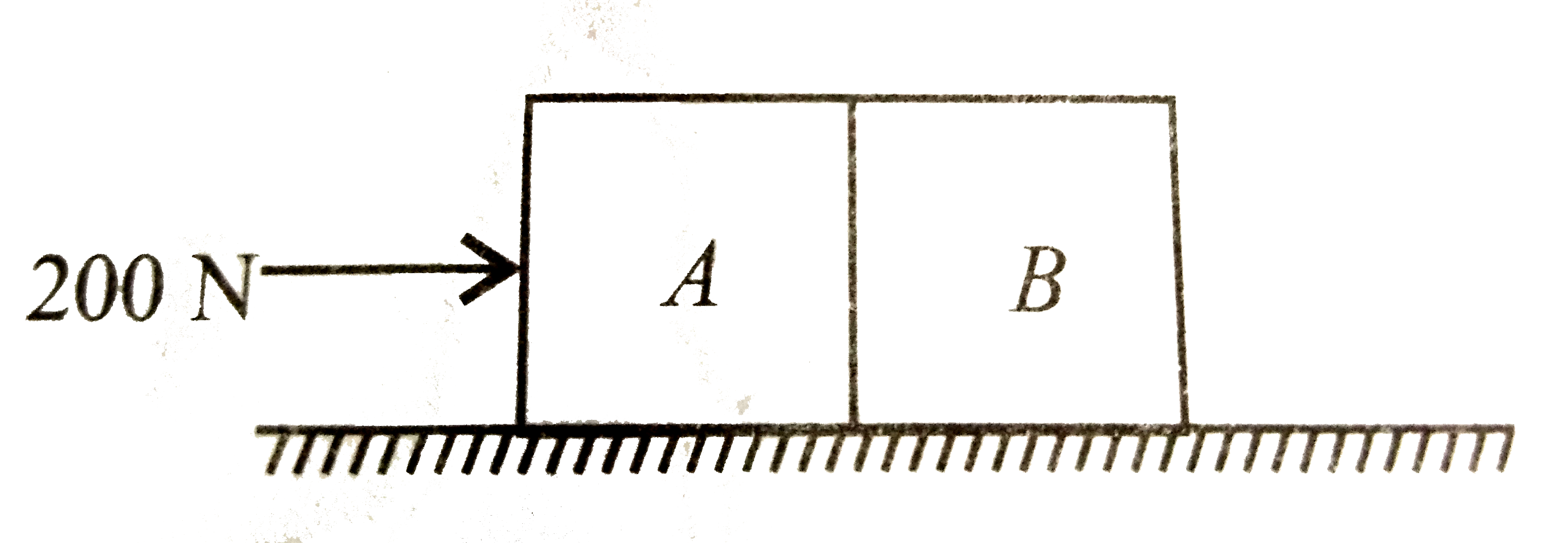 A4ms−2B6ms−2C8ms−2D10ms−2
A4ms−2B6ms−2C8ms−2D10ms−2
A block of mass m=4kg is placed over a rough inclined plane as shown in fig . The coefficient of friction between the block and the plane μ=0.5 A force F=10N is applied on the block at an angle of 30∘. Find the contact force between the block and the plane.
k

View SolutionTwo masses A and B of 15 kg and 10 kg are connected with a string passing over a frictionless pulley fixed at the corner of a table (as shown in figure). The coefficient of friction between the table and block is 0.4. The minimum mass of C, that may be placed on A to prevent it from moving is:

View SolutionTwo block A and B of masses 5 kg. and 3 kg. respectively rest on smooth horizontal surface with B over A. The coefficient of friction between A and B. 0.5 the maximum horizontal force that can be applied to A so that there will be motion of A and B without separation is :-
View SolutionA plank of mass 10 kg and a block of mass 2 kg are placed on a horizontal plane as shown in the figure. There is no friction between plane and plank. The coefficient of friction between block and plank is 0.5 .A force of 60 N is applied on plank horizontally. In first 2 s the work done by friction on the block is
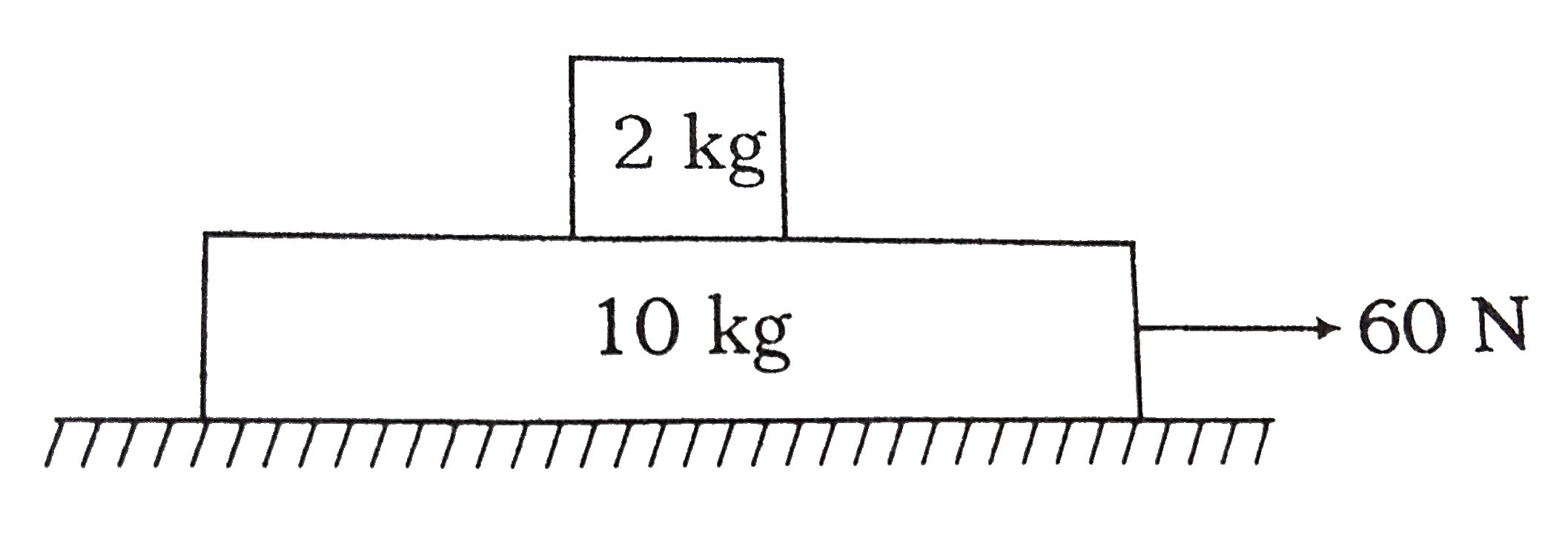
View SolutionA force of 100N is applied on a block of mass 3kg as shown below. The coefficient of friction between wall and the block is 1/4. The friction force acting on the block is :
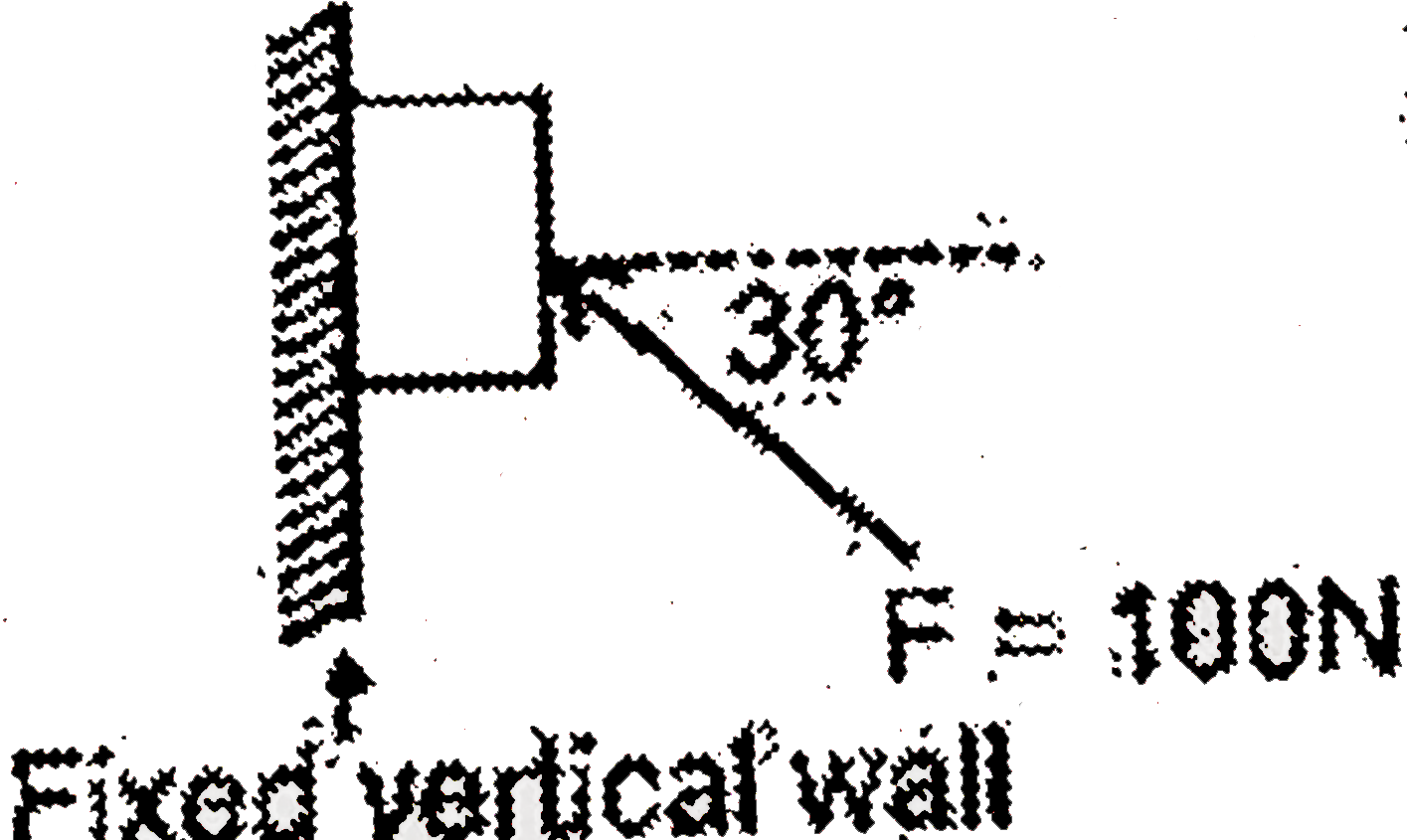
View SolutionA block of mass 0.1 kg is held against a wall applying a horizontal force of 5 N on the block. If the coefficient of friction between the block and the wall is 0.5, the magnitude of the frictional force acting on the block is :
View SolutionTwo blocks of masses 2 kg and 1 kg are in contact with each other on a frictionless table. When a horizontal force of 3.0 N is applied to the block of mass 2 kg the value of the force of contact between the two blocks is:
View Solution

